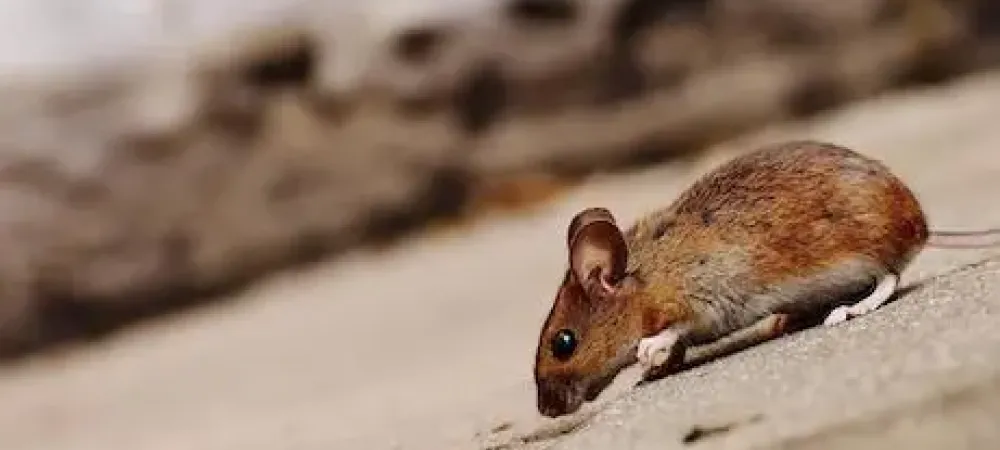What Smells Do Mice Hate?

Mice are sneaky, unwelcome guests in any home, and their sensitive noses make them surprisingly easy to deter—if you know which smells they hate. From natural oils to household items, certain scents can help keep these rodents at bay. In this guide, we’ll cover the smells mice avoid most, how to use them around your home, and other simple strategies to make your space less inviting to these tiny intruders.
Which Smells Repel Mice?
Certain scents can make your home less appealing to mice, thanks to their sensitive noses. Here are the most effective smells and how to use them around your home to help keep rodents away.
1. Peppermint Oil
Mice can’t stand the strong, minty aroma of peppermint. To use it in your home, soak cotton balls in peppermint oil and place them in areas where you’ve noticed rodent activity, such as cabinets, basements, or near entry points. Refresh the oil every few days to keep the smell strong, and consider planting peppermint around your home’s exterior for extra protection.
2. Eucalyptus Oil
The sharp, medicinal scent of eucalyptus is another natural deterrent for mice. Add a few drops to cotton balls or mix with water in a spray bottle and mist around baseboards, doors, and windows. The lingering scent helps make these areas less attractive to rodents looking for ways inside.
3. Clove Oil
Clove oil has a powerful, spicy smell that rodents dislike. Place clove oil–soaked cotton balls in small spaces, or combine with peppermint oil for a stronger effect. The combination of these oils can create a natural barrier that mice are more likely to avoid.
4. Ammonia
Because ammonia mimics the odor of predator urine, mice often avoid it. You can place small bowls of ammonia near suspected entry points, but be cautious—its strong fumes can be irritating to people and pets, too. It’s best used in garages, basements, or other well-ventilated spaces.
5. Vinegar
Mice dislike the strong, acidic smell of vinegar. Mix equal parts vinegar and water in a spray bottle and use it to wipe down counters, floors, and other surfaces where you suspect mouse activity. The scent fades quickly, so you may need to reapply often for it to remain effective.
6. Cinnamon
The spicy, pungent aroma of cinnamon can also repel mice. You can sprinkle ground cinnamon in problem areas or place cinnamon sticks in cupboards and pantries for a safer, natural option. Its warmth and strength make it a popular choice for households looking for a non-toxic deterrent.
7. Mothballs
Mothballs have a strong chemical odor that repels mice, but they are toxic and not safe for use inside living spaces. If you do use them, only place them in sealed areas such as attics or sheds, well out of reach of children and pets. Always follow safety guidelines closely to avoid unwanted health risks.
What Smell Do Mice Hate the Most?
Of all the scents that can help keep mice away, peppermint oil is often considered the most effective. Its high menthol content overwhelms a mouse’s sensitive sense of smell, making treated areas far less appealing. Homeowners also like peppermint because it’s safe to use around people and pets, and it leaves behind a fresh, clean scent instead of harsh chemical odors.
While peppermint oil can be a powerful deterrent, it won’t completely solve an infestation on its own. Mice may avoid areas treated with peppermint, but they won’t leave a home if food, water, and shelter are still available. For long-term results, pair natural repellents with sealing entry points, cleaning up attractants, and calling a rodent control professional if the problem continues.
What Else Can Help Repel Mice?
In addition to using scents, there are several other methods that can help keep mice out of your home. Combining these strategies with natural repellents can make your space much less inviting to rodents:
- Seal entry points: Close gaps around doors, windows, pipes, and vents to prevent mice from getting inside.
- Keep food stored securely: Use airtight containers for pantry items and never leave pet food out overnight.
- Maintain a clean home: Regularly vacuum, sweep, and wipe down surfaces to eliminate crumbs and food residue.
- Remove clutter: Mice love hiding in piles of clothes, cardboard, or paper, so keep storage areas tidy.
- Use traps strategically: Snap or live traps can reduce populations in combination with other deterrents.
- Limit outdoor attractants: Keep compost piles away from the home and trim vegetation near foundations.
- Install ultrasonic repellents: Some homeowners use devices that emit high-frequency sounds to deter rodents, though results can vary.
By using multiple strategies together, you make your home less appealing to mice and increase the chances of keeping them out for good.
Need Professional Help? Call Workman Pest Control!
If you’ve tried natural repellents and other strategies but mice are still making themselves at home, it’s time to call in the professionals. At Workman Pest Control, we provide reliable rodent control services throughout the Scottsdale area. We can help identify how mice are getting in, eliminate existing infestations, and set up preventive measures to keep them out for good. Don’t wait until a few mice turn into a bigger problem—give us a call today and take the first step toward a rodent-free home.
